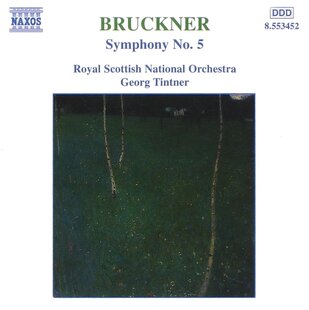|
As part of my one-disc-at-a-time survey of my classical CD collection, I’m going through the Naxos 30th Anniversary box set.  There’s a famous scene in Amadeus where Emperor Joseph II accuses Mozart of writing music with too many notes. Mozart is, of course, shocked and appalled at the statement. The emperor tries to reassure him: “My dear young man, don’t take it too hard. Your work is ingenious. It’s quality work. And there are simply too many notes, that’s all. Just cut a few and it will be perfect.” Mozart’s response is tinged with both disdain and cheek: “Which few did you have in mind, Majesty?” In my opinion, the music of Anton Bruckner has too many notes. The problem is that, if he “cut a few,” there would be almost nothing left. His Fifth Symphony is full of bombast but lacking in substance, full of lovely moments that go nowhere and amount to nothing. I’ve commented in the past that Brucker is the polar opposite of Anton Webern, a composer I will write about in due course: Webern expresses whole worlds in a matter of seconds; Bruckner says almost nothing, but takes hours to do so. The fourth movement of the Fifth seems particularly pointless to my ear: It’s twenty-five minutes of meandering around a theme of striking banality. It would have been too long at ten minutes; at more than twice that, it’s interminable. The third movement scherzo is no better: It’s bloated and humorless, the antithesis of what a scherzo should be. I know some people love this music. I am not among them. My loss, I suppose. At least Georg Tintner and the Royal Scottish National Orchestra play it with conviction. Frankly, they play it so well that it almost makes sense. Almost.
0 Comments
Leave a Reply. |
AuthorChris Massa is a US-born musician based in Durham, England. You are on his site right now. Archives
June 2024
Categories
All
|
|
Copyright © Christian David Massa
|

 RSS Feed
RSS Feed